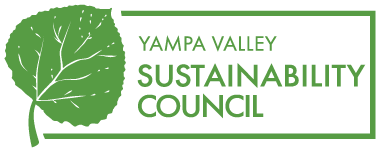AUGUST 26, 2013 BY
Join us for an informative evening on Genetic Modification tomorrow night at Colorado Mountain College at 5:30pm. More here: http://yvsc.org/calendar/upcoming-events/talking-green/
Why come? This is a hot topic with myths and mysteries surrounding it… here’s a few to start with, recently printed by the Organic Consumers Organization:
Truth: Food companies routinely and intentionally mislead consumers by labeling products “natural” in order to attract health-conscious consumers. Because the U.S. Food & Drug Administration (FDA) does not prohibit the use of the word “natural” on products containing GMOs, most consumers are fooled by this label. According to a recent poll by the Hartman group, 61 percent of respondents erroneously believed that the use of the word “natural” implies or suggests the absence of GMOs, versus 63 percent who correctly believed that the label “organic” means that a product is GMO-free. Food companies should be required, as they are in some 60 other countries, to clearly state that a product contains GMOs. If companies truly believe their GMO ingredients are perfectly safe, why spend millions to keep from having to label them?
Lie: GE foods pose no health safety risks.
Truth: GMOs have never been proven safe. The FDA requires no pre-market health safety studies, and the only long term peer-reviewed animal study conducted involving GMO corn sprayed with Monsanto’s Round Up herbicide, found massive tumors, organ failure and premature death in rats. In addition, a growing body of peer-reviewed animal studies have linked these foods to allergies, organ toxicity, diabetes, cancer, autoimmune disorders, birth defects, high infant mortality rates, fertility problems, and sterility. Clearly, more independent, long term studies are warranted. Until GMOs are proven unequivocally safe, they should be labeled so consumers can avoid them if they choose.
Lie: The World Health Organization, American Medical Association, National Academy of Sciences and other respected medical and health organizations all conclude that GE foods are safe.
Truth: The United Nations/World Health Organization food standards group and the American Medical Associationhave called for mandatory pre-market safety testing of genetically engineered foods, a standard the U.S. fails to meet. A National Academy of Sciences report states that products of genetic engineering technology “carry the potential for introducing unintended compositional changes that may have adverse effects on human health.” Numerous public health and medical groups support the labeling of GE foods, including the American Public Health Association, Washington State Nurses Association, Breast Cancer Action, Allergy Kids Foundation, Autism One, and many others.
Lie: We need GMOs to feed the world.
Truth: Studies have proven that GE crops do not lead to greater crop yields. In fact, just the opposite is true. A 2009 study by the Union of Concerned Scientists found GMO crops fail to produce higher yields. And a recently released, peer-reviewed study published in the International Journal of Agricultural Sustainability found that conventional plant breeding, not genetic engineering, is responsible for yield increases in major U.S. crops.
Lie: GE crops aren’t harmful to the environment.
Truth: Besides polluting the environment with herbicides and pesticides, GE crops are leading to biodiversity loss and the emergence of “super bugs” and “super weeds” that are threatening millions of acres of farmland, requiring the need foreven more dangerous and toxic herbicides.
GE crops, and the toxic pesticides they are designed to withstand, are endangering numerous critical species, including thehoney bee, frogs, birds, fish and the Monarch Butterfly.
And don’t forget our air and water. The island of Molokai in Hawaii has had its air and water quality destroyed by Monsanto’s almost-2000-acre test facility. The same is true worldwide, with many areas around GMO farms reporting horrific bloody skin rashes, an uptick in asthma and toxic pesticides that leach into the groundwater.
More here… http://www.organicconsumers.org/articles/article_28148.cfm
Can’t make it tomorrow?
Stay tuned for our videos of the event on Sustainability You Tube.






